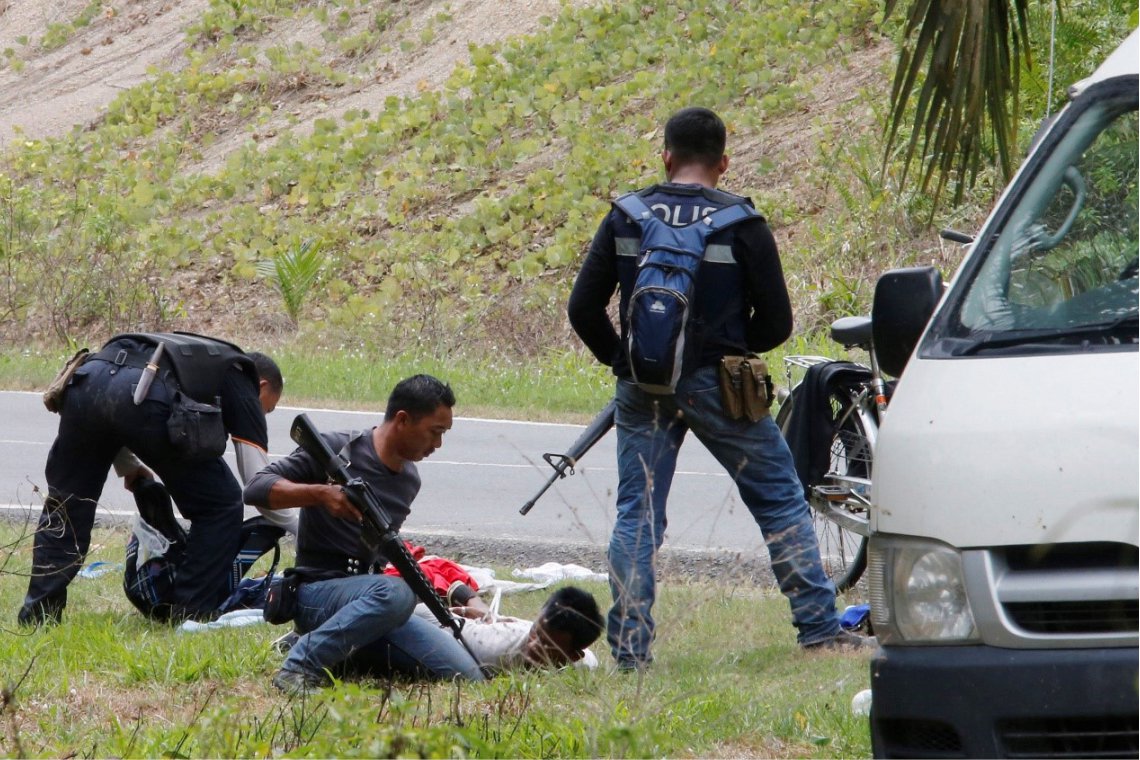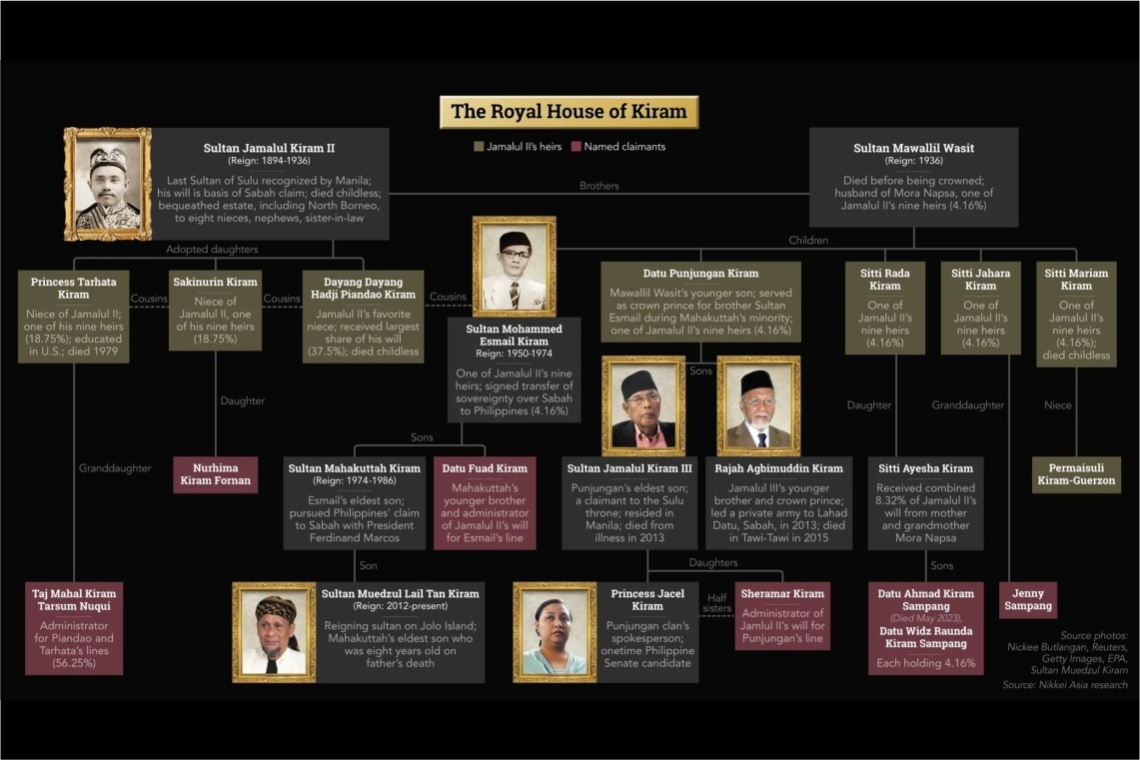LAHAD DATU, SABAH – Nothing about the crossing was immediately unusual. For centuries, people traveled the 200 kilometers of water between here and Tawi-Tawi, the Philippines’ southernmost province, to sell wares or purchase goods.
But in the dead of night 10 years ago, two motorboats crossed over into neighboring Malaysia and landed on Sabah, carrying around 200 elderly men, a dozen World War II rifles and their leader, a 72-year-old prince.
The prince, Agbimuddin Kiram, wanted to occupy the northern tip of Borneo on behalf of his older brother Jamalul Kiram III, a claimant to the former Sultanate of Sulu. His elderly band called themselves the Royal Sultanate Force, a mere shadow of an age when the Tausugs of Sulu were feared warriors.
Relatives say Agbimuddin’s last-ditch effort to reunify the lost realm of his ancestors was driven by his impending mortality.
“They just wanted to experience being in their territory. Agbimuddin asked three times for permission from my father to go to Sabah. Finally, he went without permission,” his niece Jacel Kiram, daughter of Jamalul III, told Nikkei Asia.
His daughter claims he was surprised by Agbimuddin’s actions, but nearly a month into the standoff, Jamalul IIIhad decided to stand by his brother. Agbimuddin and his men would “fight until the last man” to “reclaim and settle peacefully in our homeland,” Jamalul III said in a 2013 statement delivered by Jacel.
By mid-March, through airstrikes and house-to-house manhunts, Malaysia had recaptured Tanduo and killed 56 of the raggedy band they referred to as "terrorists" after ambushes and shootouts by the invaders felled nine Malaysian officers and six civilians.

(Nikkei Caption: Malaysian police search two detained men near Tanduo village on March 6, 2013, in the midst of the stand-off with Agbimuddin Kiram's forces. (Photo by Reuters)
Dozens of Filipinos were charged in Malaysian courts, while the rest fled with their leader, back to Tawi-Tawi, where Agbimuddin died two years later.
The consequences, however, have since reverberated further than Sabah’s shores. Najib Razak, then prime minister of Malaysia, apparently saw the failed invasion asa violation of a centuries-old contract with the sultanate for the lease of Sabah, signed by British explorers in 1878 and inherited by Malaysia.
For years, eight of Agbimuddin’s relatives had quietly received from Malaysia a yearly payment of 5,300 ringgit (now $1,140) for the rights to Sabah. It was a token sum fora land whose mineral wealth would later turn out to be considerable after oil was discovered in 1910.
Almost immediately after Agbimuddin’s invasion, Najib ceased those payments.

Article source:



